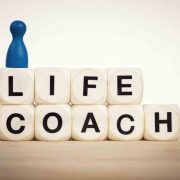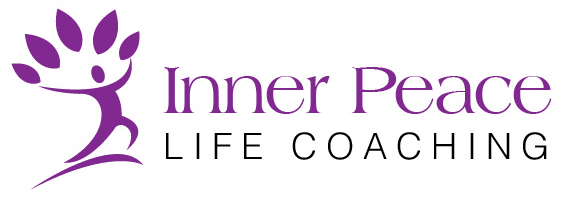Lessons from the Lockdown
Lessons from the Lockdown
At a time when we are thinking about Post COVID scenarios, it is essential to take a step back and a step higher to see the realities of our life from a new angle. We choose a perspective that equips us with addressing the present challenge and turn it into an opportunity. In This Article, I will discuss, how people react to SEEs (Significant Emotional Events) or Traumas and pandemics situations, briefly evaluating the steps to ensure the best selection of choices in a given situation and avoid getting into traps of learned hopelessness.
Life has hit a pause button for a great majority of us. About a couple of months ago, we were all incredibly busy in the race to work, race to home, race to get projects done, race to do daily errands for work or home, race to get through the day comfortably. Almost everyone, regardless of age, ethnicity, and religion, is encouraged to stay at home and/or work from home. Adding to our stress is our quick and easy access to news from around the world.
If we reflect, we will realize that many things that we deemed a dire necessity in a pre-COVID world are not crucial to our existence. Now, we are living without them, some people are accepting the situation, and some are still struggling to accept it.
This situation, tragic and horrific as it is for the millions of people across the globe, can be used to re-evaluate our place in life. We are learning a new normal, and it’s not comfortable, but it’s our reality for the time being. This is our chance to rethink our lives and our choices.
Behavior scientists have been studying people’s responses to difficult situations for a long time. How people react to challenges in life can be summarized as below.
- Respond Negatively – People are distressed and cannot relax or carry out daily functions of life. As time passes, life becomes even more difficult and they find it hard or rather impossible to return to normalcy.
- See Saw Response – These are the people who initially are stressed out and find it hard to cope with what’s going on. However, their survival instincts take over and their brain starts experimenting and re-evaluating the options they have. They learn to choose better options to cope up with the challenges they are facing. These are the people who will eventually bounce back, and life will be normal again. With a little support from Coaches, this process can be expedited and given better directions.
- Resilient – These are people who might feel bad, but still manage to get good sleep, eat healthily, and move on without many hurdles. They quickly get back to high-level functioning in the new situation. This is the response we want to install it ourselves.
Here are some tips from NLP to build or enhance and maintain it.
Some of the NLP Pre-suppositions that can help you to become resilient:
- The map is not the territory.
What you see is not actual, it’s only a reflection of how we see the situation from our filters of perception. There are a lot of options to view things differently. - You have all the resources to cope with your situation. We have built-in solutions to our problems. Coaching is required to see different options, and it is blocked sometimes due to linear thinking styles.
- You are in charge of your mind, and your results. This presupposition puts you at CAUSE, and makes you an owner of your results, unlike EFFECT side responses which entails blaming everyone, everything including self for your problems
Research shows that there’s a striking difference between how people respond to stress. People who respond negatively to stress and those who are resilient is how they set their goals.
One of the techniques which I used recently with some of my clients is setting well-formed outcomes.
Step 1 – Focus on what you want, and not to focus on what you don’t want?
Step 2 – Ensure sensory-specific outcome. See, hear, and feel as if you have already achieved your outcome.
Step 3 – Check Ecology. What you are deciding to choose fits well in all areas and aspects of life? If not, how can you achieve it differently in a way that it is ecological to you?
Step 4 – When you achieve this, what would be different in your life?
Step 5 – What is that first step YOU need to take immediately, maybe in the next 24 hours?
Step 6 – From your previous experience of achieving your goals, what resources do you need now? If you haven’t had such experiences, observe successful people, what are the internal resources they have, which you can model.
These simple 6 steps, trigger your brain to develop the neurology required to be successful and create a resilient mindset.
A word of caution, as some may experience the NOCEBO effect, in response to all NLP interventions. Whatever you do, the response is negative and it blocks all attempts to change. In fact, this is also a choice in which the reptilian brain has preferred to address the challenge it perceived. The more you delve here, your emotional brain will be trained to always respond negatively. You have to get rid of these thought patterns either by yourself or with some assistance. This mindset promotes negativity and leads you into traps of Learned Hopelessness. Eventually, the pattern would trigger anxiety, panic, and depression.
Linear and unhelpful thinking patterns are natural outcomes of such a mindset.
- Judgments – Making evaluations or judgments about events, ourselves, others, or the world, rather than describing what we actually see and have evidence for
- Mind-Reading – Assuming we know what others are thinking (usually about us)
- Emotional Reasoning – I feel bad so it must be bad! I feel anxious, so I must be in danger.
- Prediction – Believing we know what’s going to happen in the future
- Mountains and Molehills – Exaggerating the risk of danger or the negatives. Minimizing the odds of how things are most likely to turn out, or minimizing positives.
- Compare and Despair – Seeing only the good and positive aspects in others, and comparing ourselves negatively against them
- Catastrophizing – Imagining and believing that the worst possible thing will happen
- Critical Self – Putting ourselves down, self-criticism, blaming ourselves for events or situations that are not (totally) our responsibility.
- Black and White Thinking – Believing that something or someone can be only good or bad, right or wrong, rather than anything in-between or ‘shades of grey.1
- Should and Must – Thinking or saying ‘I should’ (or shouldn’t) and ‘I must’ puts pressure on ourselves, and sets up unrealistic expectations
Once you notice these patterns, you must challenge or distance yourself from these thoughts, and see the situation in a different and more helpful way.
In case you find yourself engaging in unhelpful thoughts, you can contact your coach to assist you in creating an alternative thinking pattern.
Unlike dinosaurs, man is designed to survive. What supports this process is that we reorganize and reset our perception filter to suit the new conditions and move forward. We learn to adapt and adopt, necessary for survival, and become victorious.
For those, who find it difficult to make empowering decisions in life, with your present perceptions and filters, call us or email us and book a session with our internationally certified Practitioners and Coaches.
Sajid Ahamed is a “Certified trainer of NLP” and Founder of Inner Peace Life Coaching Pvt Ltd, India. He organizes Grinder approved trainings in India and Middle East. He is a firm believer in high performance. He enjoys engaging in powerful conversations that lead to effective learning and results. He conducts NLP Practitioner and New Code NLP Trainings in India and Middle East. He is one of the few who are authorized by ITA (International Training Academy) to conduct New Code NLP Certifications in India and Middle East. Being Certified in Energy Leadership Index Assessment by one of the largest ICF-accredited coach training schools in the world, “Institute for Professional Excellence in Coaching” (iPEC). He is also a certified and authorized to conduct Emotional intelligence Assessments by Six Seconds. Sajid empowers his clients to achieve their greatest potential and evolve into their personal best version through emotional intelligence coaching.
IPLC Team













